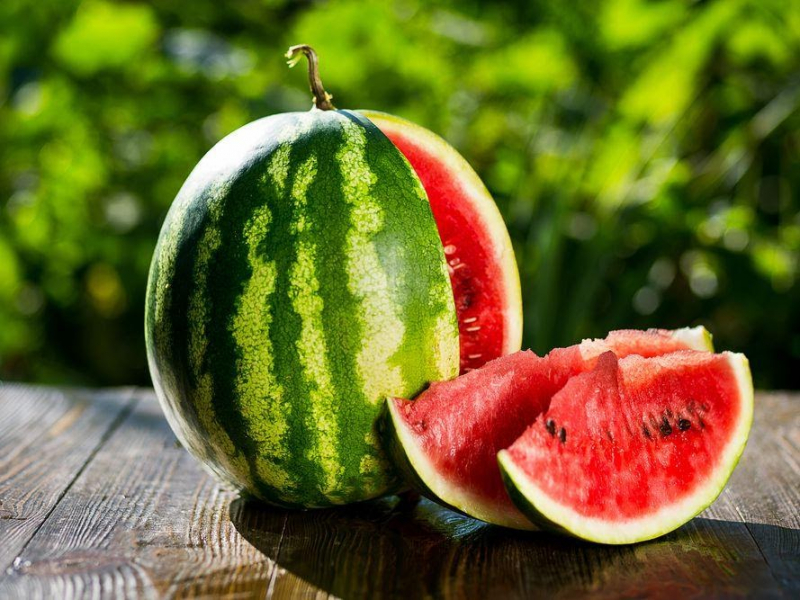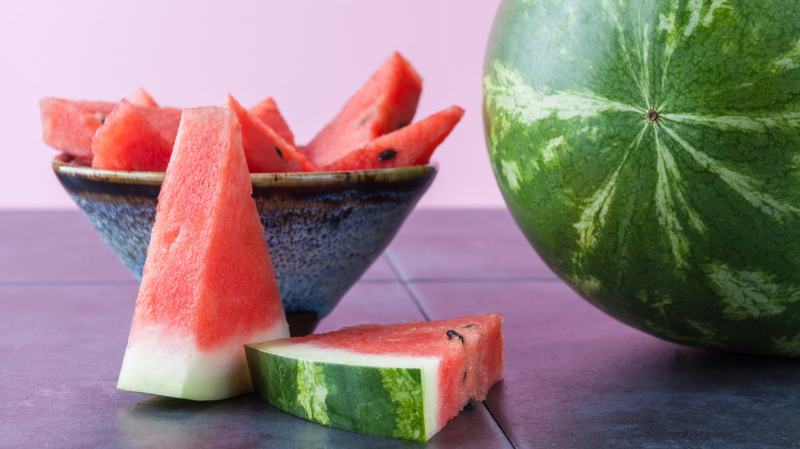Watermelon
A favorite summer picnic fruit, watermelon has few calories and is a good source of two powerful plant compounds — citrulline and lycopene. Similar to dietary nitrates, citrulline helps your body produce nitric oxide and may delay exercise fatigue and relieve muscle soreness. Containing 91% water by weight, watermelon can also help you rehydrate after your run. Even though it does contain sugar (about 17 grams), the sugar present is fructose, which is naturally present in the fruit. Because fructose is easier for our bodies to process and won't cause as much of a blood sugar spike as, say, a bag of sour watermelon candy, fructose is a much better choice than added or processed sugars.
Watermelon can be eaten on its own or combined with other foods, such as salads, to make a dish that is more satisfying. Cubed watermelon combined with cherry tomatoes, red onions, baby arugula, and feta cheese makes a nutrient-rich post-run snack. Dress the salad, if preferred, with lime juice and olive oil.







